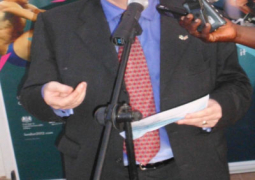As many as 700 people were feared dead after a boat packed with migrants capsised off the Libyan coast last week.
The UN said this latest incident has been the deadliest so far recorded in the Mediterranean.
We are deeply concerned about this situation as it has become grave, with some of our compatriots being victims in this latest catastrophe.
The other worrying thing is that there seems to be no kind of silver bullet or any kind of panacea that is going to make the situation go away.
The fundamental causes of this crisis will take years to be addressed. An urgent first step is to reinstitute the EU search and rescue operations.
At the same time, as the UN has urged, a top priority must be to create safe, legal options so that would-be migrants do not need to turn to people smugglers or put their lives at risk at sea.
In the meantime, the youth can only be discouraged not to venture into this kind of illegal migration, but should not be completely condemned for doing so.
Many see this as another root out of hardship and poverty at home; hence the number of Gambians, especially travelling to Europe and America, whether legal or illegal, increases, and their contribution to the economy also keeps growing.
The Central Bank has said remittances as a percentage of Gambia’s Gross Domestic Product (GDP) has grown over time from a mere about 3 to 4% in the 1990s to nearly 10% of GDP in 2011.
Monies from our brothers and sisters in the Diaspora have surpassed foreign direct investment, and become the biggest source of financial inflow.
The monies they send home have become a large source of foreign exchange for The Gambia.
However, correct measures, including transforming our national economic predicament, must be taken to put a stop to this dire trend of illegal migration, as it is costing the lives of our youths dearly.
“I am not against migration. It is simply pragmatic to restrict migration, while at the same time encouraging integration and fighting discrimination.”
Ayaan Hirsi Ali


